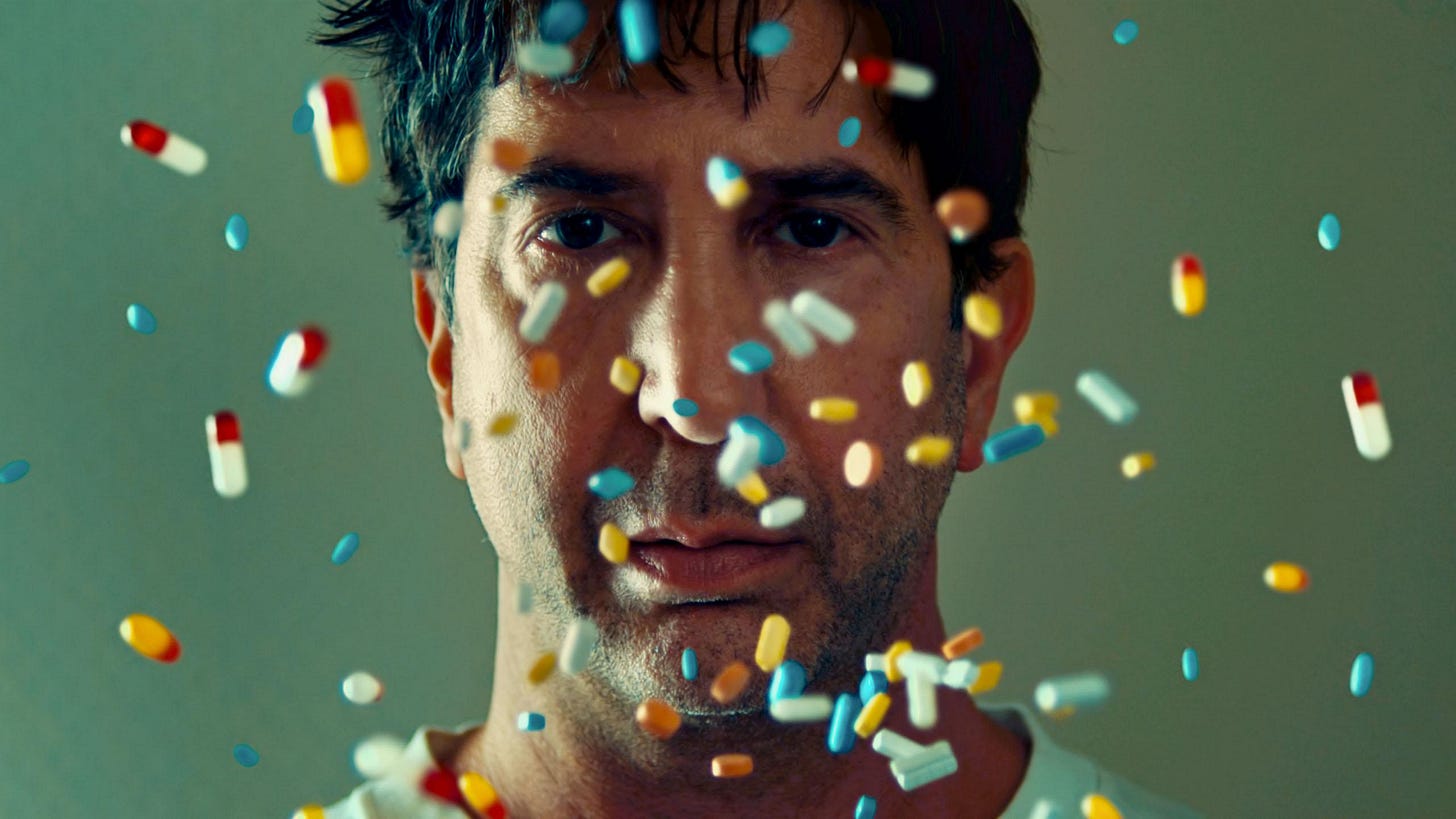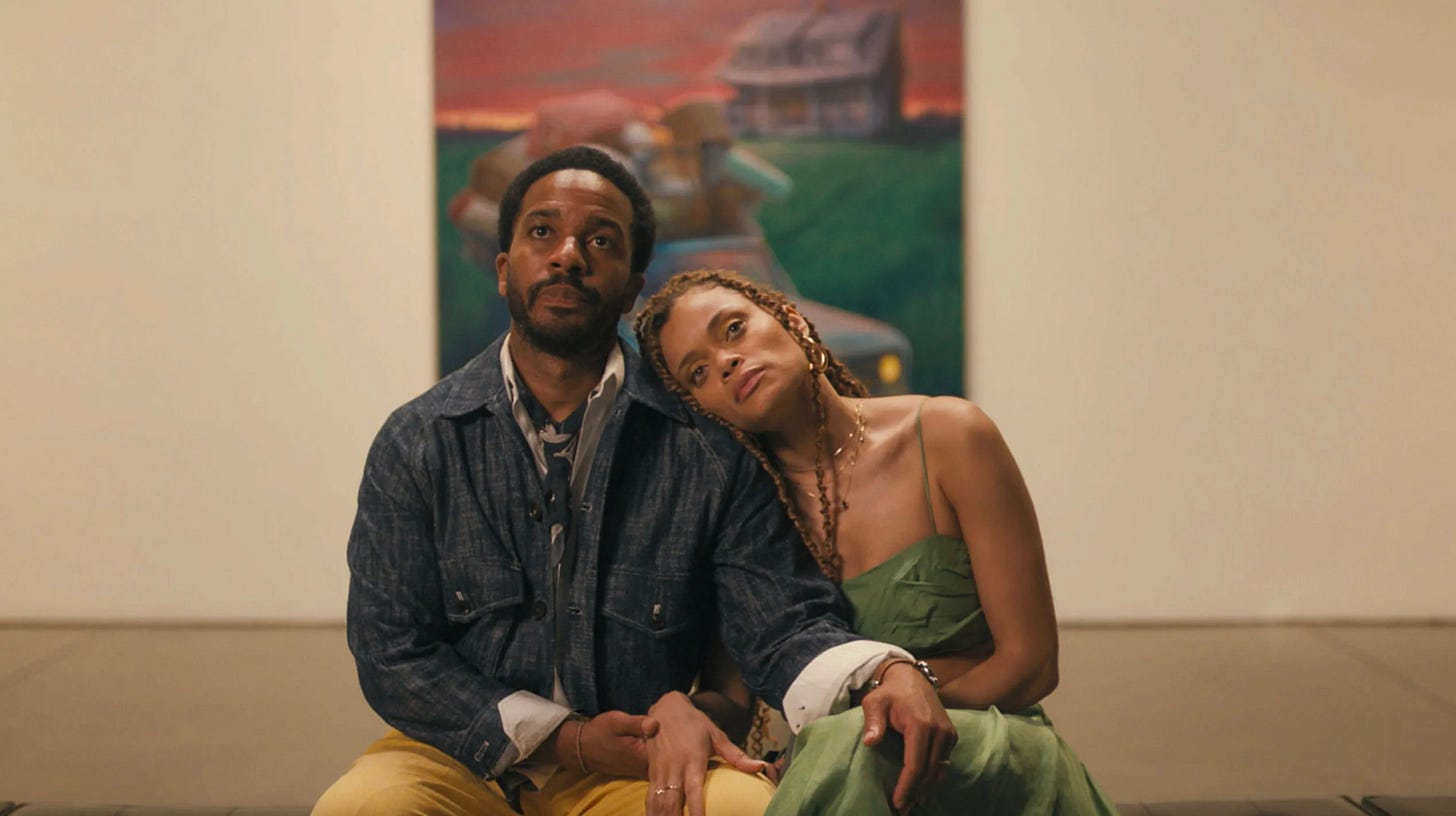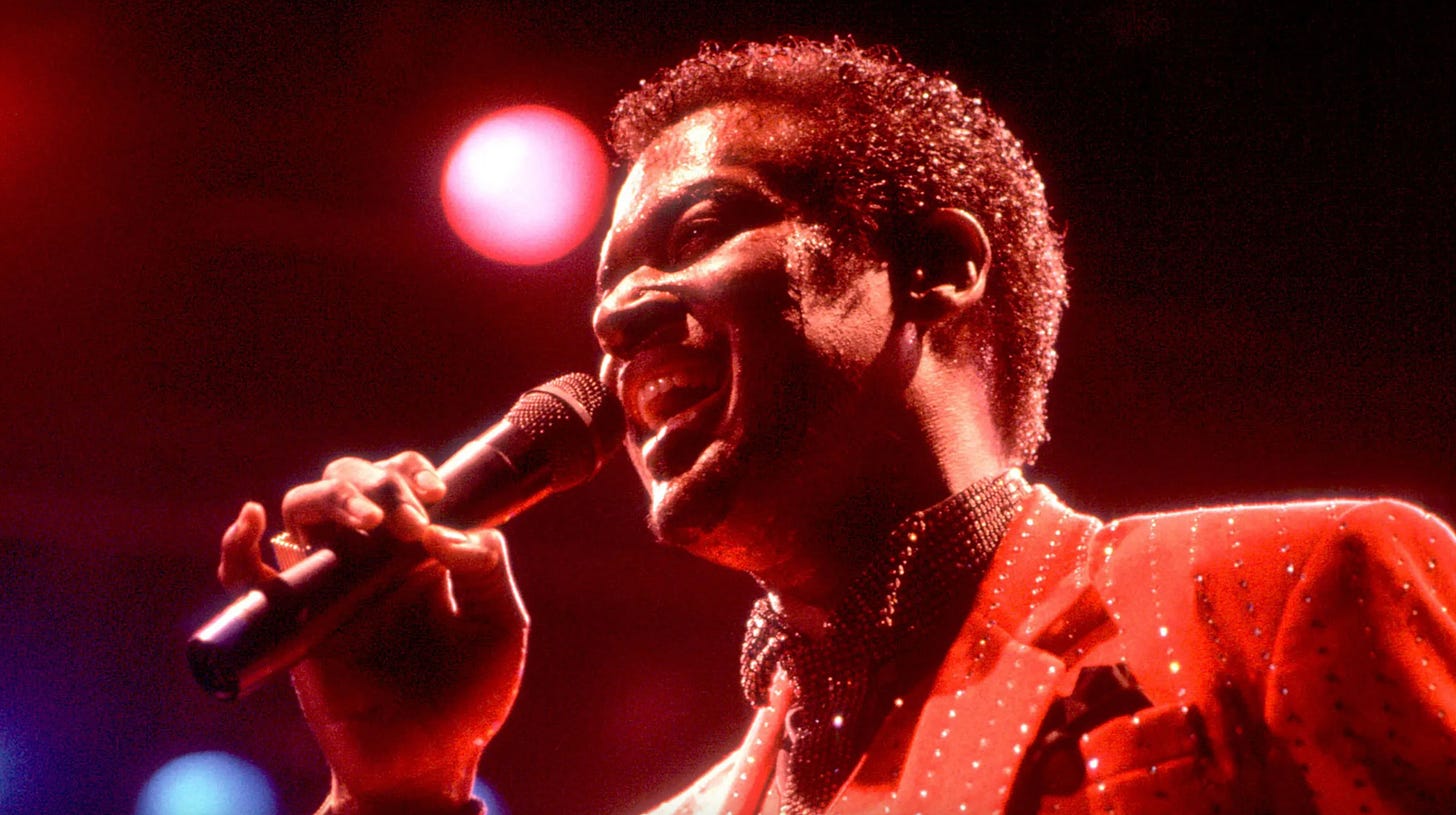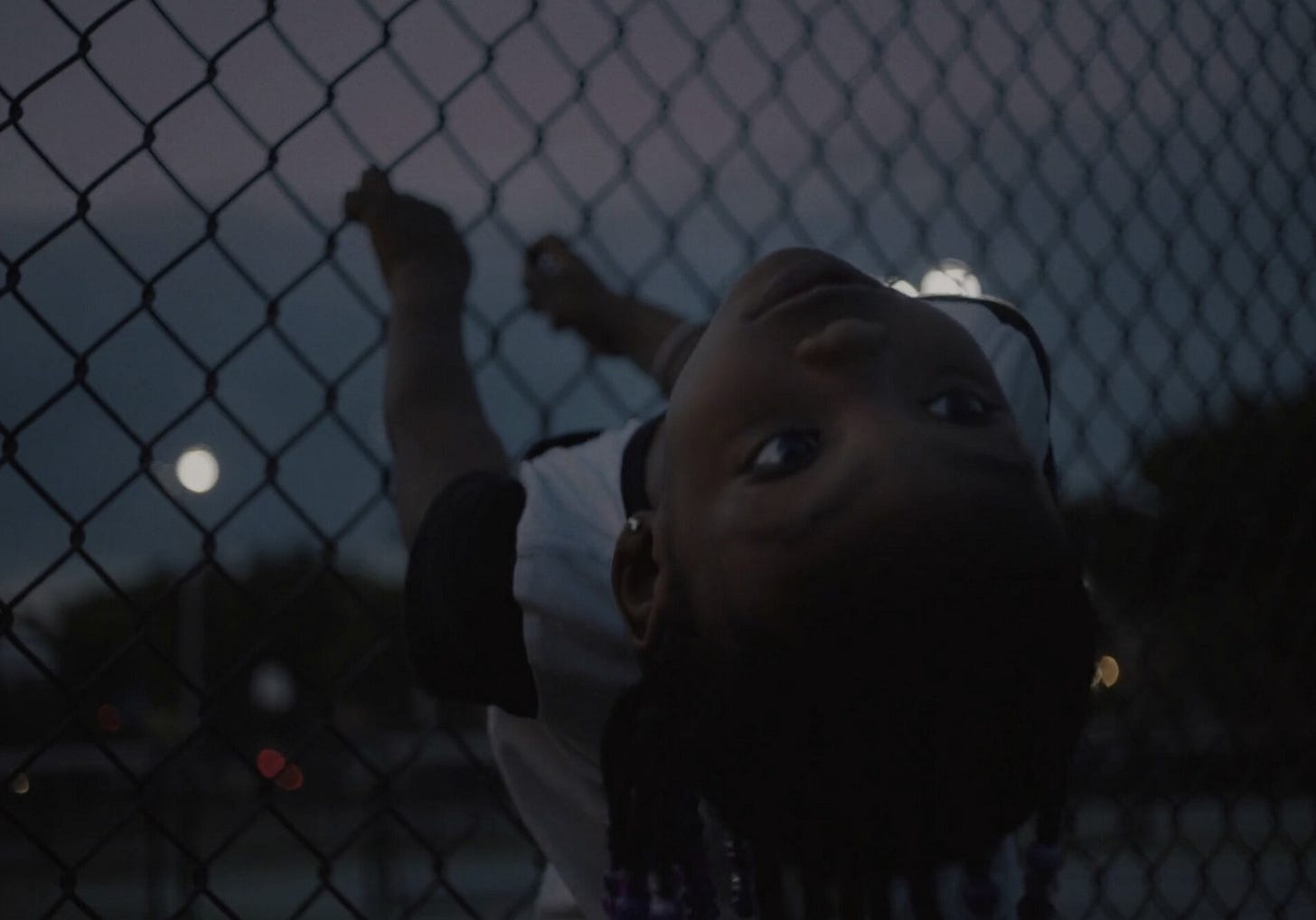Sundance Reviews: Daughters, Little Death, Exhibiting Forgiveness, A Real Pain, Luther: Never Too Much, & In The Summers
And my Top 5 Faves of the Fest!
Sundance 2024 is a wrap and I’m proud to say that I caught more films than ever before. Certainly, living in Utah and being just a 40-minute drive from Park City was a big help for the in-person screenings, so there’s that, but I did make a big effort to try and catch as much as possible since I’m covering for this publication (Way of the Shirey) and my YouTube channel (Arctic Ninja Network). It makes a big difference when you just have to answer to yourself and I did hold myself to a strict standard.
While this will be a quick wrap-up of reviews, there will be one more surprise piece that I was able to cull from Sundance, which will be up later this week. Until then, enjoy the last of my reviews and check out my Top 5 Faves list at the end!
Little Death
Directed by: Jack Begert
Written by: Jack Begert and Dani Goffstein
Starring: David Schwimmer, Jena Malone, Angela Sarafyan, Gabby Hoffmann
Little Death is one part excellent film and one part “what the fuck happened?” It’s a split narrative that starts off with David Schwimmer as a struggling TV writer who is about to finance his first feature (a biographical indie), but hits a snag when he is told that the financing is contingent on him changing the protagonist of his script from a white male (IE himself) to a female.
It was here that I thought we’d be deep-diving into the woke-era bullshittery of Hollywood, where white males are now persona non grata in any kind of lead role unless they’re villains, but the film takes a sudden shift, focusing on two different characters who are loosely tied to Schwimmers, derailing from the opportunity to give us a modern-day commentary on the state of the industry. They had me there, but lost me at the narrative U-Turn.
Still, the fact that they’d even bring that to light shows the cracks in the DEI armor that’s been falling apart of late, and I really would’ve loved to have seen an exploration of that, which could’ve tackled the pros, cons, and general state of things in a humorous and gonzo way. I say gonzo, because Little Death employs some nightmarish (and humorous) sequences of AI dream sequences that are intensely weird and disturbing. Some may bemoan the use of AI, which is fair, but it works well here, even if obvious.
Schwimmer is great in his role, which is sadly far too small by the time we hit the narrative switch, and Jena Malone is proving to be a strong presence on the indie scene of late, especially with her other Sundance entry this year, Love Lies Bleeding. Little Death shows a lot of promise, and although it follows a path I wish it hadn’t, there’s a lot of weird shit here that will hold your attention.
Exhibiting Forgiveness
Written & Directed by: Titus Kaphar
Starring: André Holland, John Earl Jelks, Aunjanue Ellis-Taylor, Andra Day, and Ian Foreman
If you’re looking to sit down and enjoy a feel-good drama about forgiveness, well, I don’t recommend Exhibiting Forgiveness. No, wait! That doesn’t mean I don’t recommend Exhibiting Forgiveness, just that you aren’t going to feel warm and fuzzy when it’s over. By all accounts, this is one of the most powerful movies to debut at Sundance this year, but it’s a tough watch, especially if you’re someone who has endured any kind of abuse or trauma from a loved one. If anything, this is going to trigger some tough memories, but maybe that’s the point of the film.
Exhibiting Forgiveness follows Holland’s Tarrell, an artist married to a musician (Day), who is doing his best to raise their son in a far more privileged and loving environment than he endured as a child. Tarrell suffered at the hands of his drug-abusing father, La’Ron (Jelks), who was violent and oppressive against him and his mother (Ellis-Taylor), leading to their separation. Raised by his mother, Tarrell carries the wound of his father around with him, which is brought to the surface when he reemerges into his life, seemingly sober, having found God after a long bought of homelessness.
What follows is a journey of confrontation and revisitation, as we watch Tarrell wrestle with his deep-seated hatred for his father, while attempting to understand what made him who he was. La’Ron seeks forgiveness from Tarrell, owning up to his mistakes, but also making excuses for them, which is where they diverge. Tarrell is too wounded to simply forgive and forget and La’Ron is too proud to simply say that he’s sorry and beg for forgiveness. They are at an emotional impasse, with neither of them willing to give an inch until tragedy strikes, forcing them both to pull back the curtain on their vulnerabilities.
The film jumps between the present day and flashback, showing a young Tarrell (Foreman) as he is emotionally and physically abused by his father, highlighting the “why” of his disdain, but also highlighting the struggle of La’Ron as an addict who was raised in a way that didn’t show him any better.
Exhibiting Forgiveness is a rough watch, more so on an emotional level than anything else, and it shines a light on the trauma of abuse, loss, grief, and redemption. That’s a lot to unpack, but it’s done exceptionally well with some poignant dialogue and two outstanding performances by Holland and Jelks that resonate as a stirring and powerful commentary on fathers and sons, especially those that were forged out of suffering.
A Real Pain
Written and Directed by: Jesse Eisenberg
Starring: Kieran Culkin, Jesse Eisenberg, Jennifer Grey, Will Sharpe, Daniel Oreskes, Kurt Egyiawan, and Liza Sadovy
After last year’s lackluster feature directorial debut of When You’re Done Saving The World at last year’s Sundance, Jesse Eisenberg bounces back nicely with A Real Pain, which focuses on character above all else, both to its credit and its loss. Narratively, A Real Pain is especially simple, following two Jewish cousins (Eisenberg and Culkin) who reunite to take a trip to Poland to reconnect with their roots after the death of their grandmother, who was a holocaust survivor.
That may seem like a heavy premise and it could’ve been if handled differently, but A Real Pain is more comedy than drama, but in a far more nuanced way that’s led almost entirely by the stellar performance by Culkin. It’s amazing to see how much Culkin has grown, following in his brother’s footsteps as a child actor and becoming a kind of character actor in projects like Scott Pilgrim vs. The World and HBO’s Succession (for which he just won a Golden Globe). I can’t imagine anyone would’ve taken bets on his rise to the top, but here we are.
Culkin’s character, Benji, is an aloof yet passionate persona, who is annoying, obnoxious, and self-righteous, but also self-deprecating, compassionate, and endearing. He’s a walking conundrum and he infects everyone around him in all the good and bad ways. His every interaction with those around him sparks a moment where you think he’ll burn every bridge around him, yet he’s actually building them. It’s a fascinating thing to watch and Culkin executes it with insufferable charm. You want to hate this guy, but you can’t help but love him, which is exactly how things play out throughout their trip.
By the end of this long journey through their family history, the two main characters clash, but can never stay at odds with one another. A trip to a concentration camp is a moving and harrowing sequence, and it reflects just how varied the reactions can be when faced with such a horrific reality. Both David (Eisenberg) and Benji feel it on different levels, but walk away with an appreciation they couldn’t have had otherwise.
A Real Pain is beautifully shot and deftly directed, but Culkin is the whole show and I almost wonder if his character belongs in a better movie. Not that A Real Pain is a bad one. It’s just devoid of stakes, taking a casual stroll through the narrative while letting the actors, particularly Culkin, reel you in. If nothing else, this is another check on the list for Culkin, showing that he’s an actor to contend with and one we’ll likely see accepting golden trophies for a long time to come.
Luther: Never Too Much
Directed by: Dawn Porter
I wish I could say I was well-versed in the discography of Luther Vandross, but his era just escaped my music journey. Sure, I knew who he was and could identify a few of his songs if they came on the radio, but it just wasn’t my jam when he was at the peak of his career. That said, Vandross’ legacy is a bold one, and Luther: Never Too Much shines a light on that, as well as the tragedy that was his life.
Luther tracks the rising career of Vandross, who began as a backup singer for a multitude of artists before he was “fired” to force him to record his own album, which he did, launching his solo career that would last for decades. Unfortunately, Vandross’ success was plagued by tragedy, including a life-altering car crash, a food addiction, and what many believe to be repressed sexuality as a gay man.
Vandross struggled with his weight and diabetes diagnosis, which followed him around throughout his career. It was a constant battle from a man who seemed to want to live privately, while sharing his musical gift with the world, something that can often conflict with those in the limelight. The Luther documentary tracks all of this, featuring interviews from the likes of Dionne Warwick, Mariah Carey, Jamie Foxx, Richard Marx, Patti LaBelle, and Roberta Flack, all of whom had a deep love and appreciation for the man whose voice was so powerful, but suffered in silence.
In The Summers
Written & Directed by: Alessandra Lacorazza Samudio
Starring: Residente, Sasha Calle, Lio Mehiel, Leslie Grace, Emma Ramos
As someone who spent his summers as a child visiting his father, I can relate to In The Summers on many levels. The film follows Vicente, a divorced father who has custody of his two daughters, Eva and Violete, over the summers. We watch them bond and suffer throughout the course of five years, each year marked by a Roman numeral chapter in the film, trading out actresses halfway through to show their growth.
There’s a sense of anxious dread in the film, which is common in dramatic indie fare, but it also has a sense of innocence and playfulness to balance things out. It’s very similar in tone and style to Richard Linklater’s Boyhood, which benefitted from being shot over many years with the same cast (that’s not the case here). Vicente (played by rapper Residente) at first seems like a simple-minded thug, but he’s revealed to be an exceptionally smart and wise man, albeit one with a temper, propensity for drugs and alcohol, and recklessness when it comes to emotions.
The girls begin as innocent children who form an unbreakable bond, even as their paths diverge. Eva is the pretty, compassionate one, while Violeta is more of a tomboy with a rebellious spirit. During one of the visits, the trio is involved in a car crash that leaves you thinking that one of the girls might be dead. She reappears later, but you can understand what kept her away. It’s a subtle detail and it makes sense given the circumstances.
Each chapter brings new problems and issues, including a Vicente’s newborn daughter, relationships with friends and neighbors, and the loss of innocence that has both characters losing their virginity, one to a boy and one to a girl. Each of these is handled in a realistic way, which isn’t to say it’s good or bad, just realistic. The Flash’s Supergirl, Sasha Calle, plays the older Eva, while the canceled Batgirl Leslie Grace shows up later on as well, creating a DC reunion of sorts. Lio Mehiel plays the older Violeta, a fitting actor to take on the part given their journey.
In the Summers isn’t the most moving film I’ve ever seen, but I appreciate the angle it takes, as I can most certainly relate on my own level. Summer visitation with a parent is a very real and persistent thing for a lot of families and it’s nice to see it told in such a nuanced way. It’s not a dismal portrait of family abuse, nor is it a rosy picture of how great it can all be. It’s a balanced, realistic, and engaging portrait that falls in the middle, which is likely where most people experience such a thing.
Daughters
Directed by: Angela Patton & Natalie Rae
Daughters is a devastating, beautiful, and tragic portrait of institutional life, particularly for incarcerated fathers with daughters. The documentary follows a group of fathers at a Washington D.C. prison who are granted the opportunity to take part in a Daddy Daughter Dance, which is part of a fatherhood program within the prison.
Following along with the men as they take part in a 10-week preparation program for the dance, we also meet their daughters and, by extension, their wives and girlfriends. Seeing these young girls deal with the absence of their father in their lives is heartbreaking to say the least, especially seeing how innocent and confused they are over the scenario they are faced with. None of them act as if it was always going to be this way, but all of them feel the wound of that loss in different ways.
One girl simply loves her father and is counting down the years until he is free. Another girl is resentful of the motherly role she has to take on due to her father’s absence, while another becomes suicidal over it. It’s a complex set of emotions from each girl in that situation, which is tracked side-by-side with their father in prison, each of them confessing their fears and regrets to their counselor in the lead-up to the dance.
When the day of the dance arrives you can feel the anticipation, anxiety, and hope that it could all be beautiful, but it could also be a disaster. You want so much for each daddy-daughter duo to make the most of the opportunity, but the weight of it all is so heavy that you can’t help but contemplate the worst. The dance itself is full of all of the things you’d expect and others you don’t, making for a revealing look into an experimental program that has proven to be a detriment to repeat offenders, particularly those with kids.
Daughters goes the extra mile in revisiting the families we’ve come to know over the years, sometimes with ruinous results, particularly when a sentence is lengthened. You feel the disappointment like a wound, but at the same time, the reason that the father is in prison still lingers. In the end, their crime put them behind bars and a price must be paid, but what Daughters reveals more than anything is the price that’s also paid by the family of an offender. In the end, the families are serving the same time, just outside of prison, and it drives a divide between them and their parent.
While there is little hope for some of these families, the Daddy Daughter program proves to be the saving grace for others, particularly one man who is released and embraces life with his family. It’s a hopeful and beautiful transition, while others are less so. Daughters doesn’t take a hard stance on these types of programs, nor does it shy away from the fact that these men did bad things to end up where they are. Instead, Daughters lays bare the reality of the situation and unveils not only how far the ramifications go, but also provides a potential solution when offenders are shown what they’ve left behind. Powerful. Moving. Thought-provoking, Daughters shows the power and weight of the documentary format.
With that, here are my Top 5 films of Sundance 2024, which enter this list by way of entertainment, impact, performance, and artistry:
Love Lies Bleeding
Daughters
In A Violent Nature
Exhibiting Forgiveness
A Real Pain
That’s it for Sundance 2024 reviews! There’s still one more piece of Sundance content on the way that I think many of you will enjoy, but other than that it’s a wrap! Will I be back for 2025? Who the hell knows, but I’ll say this has been the best year for me thus far and I’m hopeful that 2025 will regain the momentum lost between Covid and the Actor’s strike, ushering in an even better batch of films.
Thanks, as always, for reading!
Napoleon Dynamite 20 Years Later
As part of my Sundance 2024 coverage, I jumped at the chance to interview the cast and crew of one of my all-time favorite comedies, Napoleon Dynamite. I know that some folks hate it, which I kind of get, but there are far more that love it, and I’m among them. To me, it’s a perfect blend of quirky, goofy, and outright odd humor that aligns with my own …












